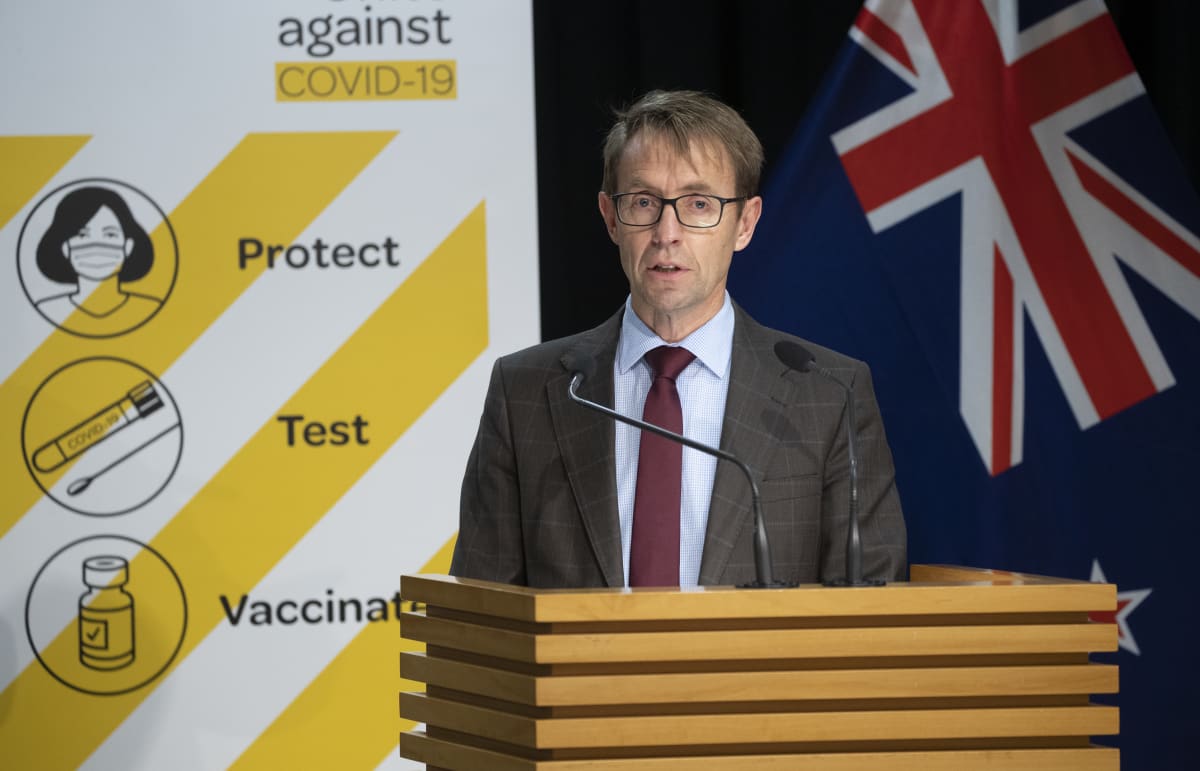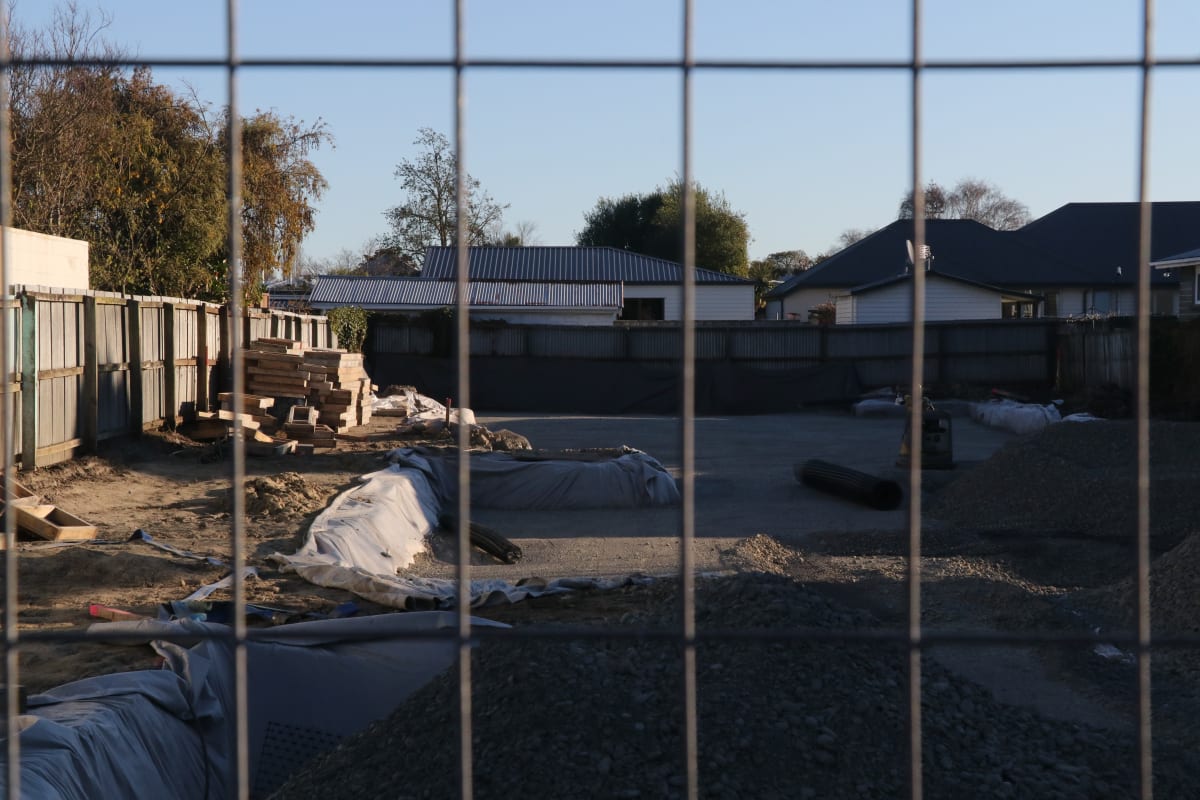Stopping the spread of Covid-19 is simple in theory, University of Auckland epidemiologist Professor Rod Jackson says.
“We just need to keep infected people away from uninfected people.”
Hence the strict lockdown, breaking the chains of transmission, in response to the recent Delta variant outbreak which yesterday reached more than 200 cases, mostly in Auckland but also in Wellington.
Another day without Covid cases in the South Island has raised hopes of an alert level change for Te Waipounamu. Tomorrow, the Government will review the nationwide Alert Level 4, before its expiry at midnight.
The Health Ministry’s advice to ministers will weigh many variables, including the level of Covid testing in the community, the results of wastewater testing, and the risk from close contacts of confirmed cases who flew back to the South Island, including 90 in Otago and Southland.
If the stars align a shift to Level 3 would be reasonable, Jackson says. “My guess is that on Friday that if everything looks clear in the South Island, Level 4 will be extended until Sunday night.”
But he adds a caveat if the country enters a split-level situation: “We have to stop potentially sending infected people from the North Island to the South Island.
“I don’t think we’ve ever done this before but I would argue that you shouldn’t be allowed in the South Island without a negative test.”
Testing must apply to essential workers, he says – which raises the question of how many of those workers are vaccinated. It’s Jackson’s island-scale version of a bubble.
“If we’re maintaining the North Island in Level 4 because we have got it in Auckland and Wellington, you don’t want to let any of those people into the South Island. And really the only way that we can do that is that they should test negative.”
This is not something he would have suggested last year, with Covid’s initial variants. “It’s because of Delta – Delta changes everything.”
As we’ve heard so often this week, including from Director-General of Health Ashley Bloomfield, Delta is like a new virus.
Shaun Hendy, a physics professor at the University of Auckland, leads Covid-19 modelling at Te Pūnaha Matatini. He says Auckland’s outbreak is larger than its initial estimates, partly because of a super-spreading church event – a cluster with more than 100 cases.
Any alert level change for the South Island will come down to detailed information from contact tracers, Hendy says – “about numbers of people from the South Island who were exposed”.
Modellers think testing rates are too low. “Not everybody in the South Island who has symptoms is getting tested at the moment,” Hendy says. “If you do want to get out of Alert Level 4 faster then lifting those testing rates is the way forward.”
Another factor is the movement of essential workers, he says, like people involved in shipping and the supermarket industry and health sectors. Hendy says those workers are probably travelling less frequently than usual, and it’s more likely a problem for areas most closely connected to Auckland.
“That’s still a factor in thinking about who might move to Alert Level 3 first.”

Jackson, whose epidemiological career of more than 40 years has focused on cardiovascular disease, says some people talk about Delta being twice as infectious as the initial variants, but that’s an underestimation.
It comes down to its reproduction rate. The previous variants had a reproduction rate, the R number (R0), of about two – meaning each infected person would infect roughly two others. Some estimates of Delta’s reproduction rate are as high as six.
As Jackson explains, a reproduction rate of two leads to doubling – from one, to two, then four, eight and 16. With a Delta case, who can infect six others, over that same period the cases would go from one, to six, then 36, 216 and 1296.
“No health system can cope with a virus that you let go that has an R0 of six,” Jackson says.
The other difference is the incubation period – the time from exposure to becoming infectious. The original variants had an incubation period of five to six days, on average, allowing contact tracers time to intervene and stop the spread. Delta’s incubation period is shorter – just a few days – plus tracers are having to deal with six infected people rather than two.
Jackson: “You’re multiplying your problem in many ways. It’s not just about the number of people being more infectious, you’ve also got less time.”
In an analogy that will resonate most with Aucklanders, he compares Delta’s effect on the health system to a motorway with half its lanes closed at rush hour. “That’s why we have to think differently with Delta.”
“I’d like to think that we’ve dodged a bullet but you just don’t know with this Delta variant.” – Lianne Dalziel
Christchurch Mayor Lianne Dalziel talks to Newsroom as she leaves her central city apartment to pound the pavements of Hagley Park. It’s a welcome relief from hours of online video meetings.
She says the city has its fingers crossed – “and our legs, too, if I was Chris Hipkins” – the South Island can maintain its record of having no cases in this outbreak, and the Government will consider changing the alert level.
“I’d like to think that we’ve dodged a bullet but you just don’t know with this Delta variant.”
Whatever the decision, it’ll be based on the best available expert advice, and the people of the South Island will have to comply it, she says.
“I’m hopeful because so far we’ve managed to not see any cases but you never know. There might have been one person who was at an event that is a place of interest up in Auckland, they may not have followed instructions and isolated, they may have been out in the community and it may not have been picked up yet.”
The city council’s work continues in lockdown. Its call centre is staffed 24 hours a day, and it continues with essential services, like rubbish collection – “we don’t want people’s rubbish piling up”. Urgent issues like burst pipes would get attended to, although the Mayor’s not aware of anything like that arising over the past week.
After last year’s lockdown, council workers adapted to life away from its central city office. Dalziel mentions staff working from home are still issuing building consents.
This has delighted Vincent Holloway, a director of Brooksfield Ltd, which specialises in townhouse developments in the city. “The consents have just been flying out,” he quips.
The company has 30 projects, totalling about 120 houses, under construction right now – although the tools are down during lockdown.
But, Holloway says, it’s not construction problems that usually hold up developments, it’s consenting and consultants.
“That’s been really good for us,” he says of the council’s efficent consenting. “We are catching up in some aspects.”

Brooksfield is still selling houses – six during lockdown – and its stay-at-home workforce has been especially productive. “Our architects have sent through more completed plans in the last week than I’ve ever seen before,” Holloway says.
A shift down an alert level would be the best of both worlds, he says, with building able to re-start and office staff still working from home.
“We’re definitely hoping for Level 3. In terms of preparations, all of our sites are sitting there ready to basically be picked up as if it was Wednesday last week again.”
Holloway says his fingers are tightly crossed for a move. But then he pauses and takes a breath, uttering what many people will be thinking.
“We all know that it’s actually better to wait for another week, to make sure we’re absolutely sweet, than jump the gun just for the sake of a week’s work, because it can all be undone pretty quickly.
Jackson, the University of Auckland epidemiologist, says Delta is difficult to manage but not unstoppable.
“If people follow the rules we can stop this outbreak,” he says. “It really is as simple as keeping the infected people away from uninfected people.”



